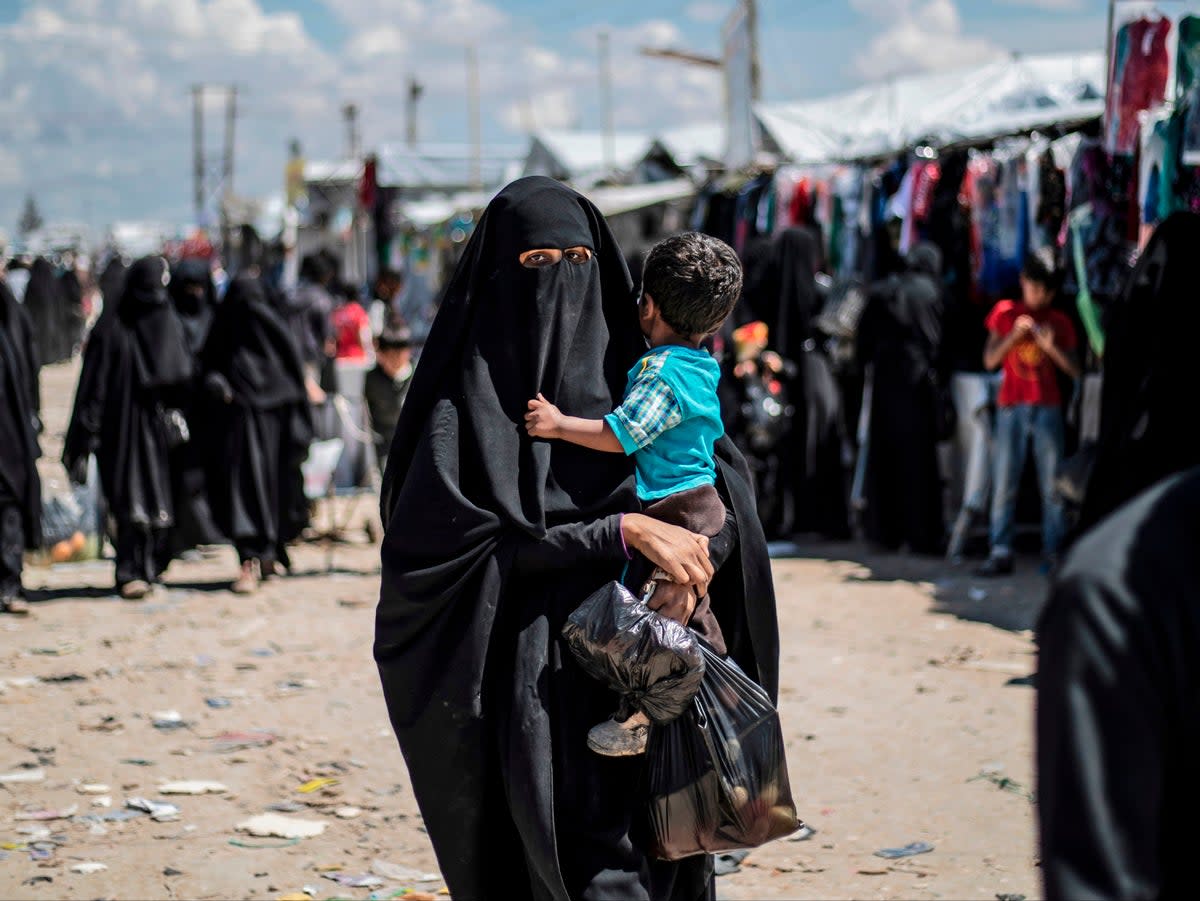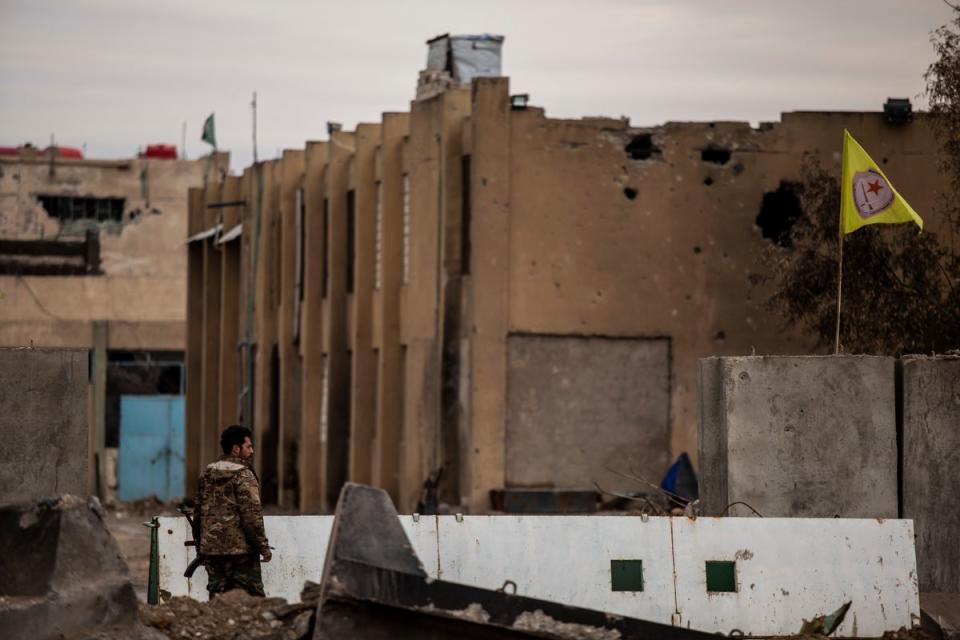Leaving Shamima Begum and other Isis members in camps could have ‘unintended consequences’, terrorism expert warns

Leaving Shamima Begum and other former Isis members who joined from the UK in Syrian camps could have “unintended consequences”, the government’s terrorism adviser has warned.
Jonathan Hall KC, the independent reviewer of terrorism legislation, said ministers had refused his formal request to scrutinise controversial citizenship deprivation powers as dozens of homegrown jihadists are indefinitely detained in precarious conditions.
He told The Independent that stripping people’s British nationality had become “the primary counterterrorism power to deal with Islamic State” members abroad and stop them returning to the UK.
“I do wonder if the policy of deprivation will end up having unintended consequences,” Mr Hall said.
“Lots of other countries are repatriating people and it begs the question of whether the UK can’t also manage the risk.
“Prosecution can be really difficult in relation to people who have been in Syria and Iraq but we’ve got a very well-coordinated counterterrorism machine, we’ve got a suite of civil powers.”
Legal charity Reprieve said the UK was now “out of step” with security partners like the US and Canada, who have been repatriating men, women and children from detention camps. Its director Maya Foa said: “Britain is the only G20 country that strips citizenship in bulk and the last of our allies refusing to repatriate its nationals from northeast Syria.
“Each time one of our allies brings its nationals home, as France, Spain, Australia and Canada have done in the past months, it shows up the UK government’s policy for what it really is: a political posture, more concerned with headlines than British lives.”
Begum is among 185 people, including a significant number of Isis travellers, who had their British citizenship removed for the “public good” between 2014 and 2020.
She lost the latest round of her legal battle over the decision on Wednesday, although a court found that she may have been trafficked to Syria for sexual exploitation as a 15-year-old girl.
Use of the power spiked in 2017, when Mr Hall said the government was “worried about being overwhelmed” by jihadis fleeing shrinking Isis territories.
“Now the numbers are less, it’s several years on and you're talking about a different risk profile,” he added.
The watchdog warned that if ministers decide it is too dangerous to leave Isis members in the camps, they have “made it harder” to bring them back to the UK by removing their citizenship.
Dozens are currently in facilities run by the Syrian Democratic Forces (SDF), which has repeatedly called for foreign nations to repatriate people.
Many detention centres have seen violent attempted breakouts and numerous escapes, while Isis has been inciting attacks to free fighters and their wives and children.
Inside, humanitarian groups have warned that jihadist indoctrination and networking is rife. Female inmates have been raped and murdered, while at least one British male prisoner has died in unclear circumstances.
Several MPs have raised concerns over years of warnings from the SDF, including Defence Select Committee chair Tobias Ellwood.
He previously told The Independent the detention of thousands of jihadis and their families in Syria was creating conditions for an Isis resurgence. “We’ll see Daesh 2.0,” he said.

In 2016, a government-commissioned review concluded that removing extremists’ citizenship may be an “ineffective and counterproductive weapon against terrorism”.
It quoted research by academics in Canada saying it amounted to “a policy of catch and release, setting up today’s convicts as tomorrow’s foreign fighters” and exporting them to places where they can do more damage because they cannot be monitored.
They warned that citizenship deprivations encouraged “the dangerous delusion that terrorism is (or can be made into) a foreign threat and problem”.
Of the more than 900 people “of national security concern” who have travelled to the Syrian conflict since 2013, a quarter have been killed and just under half returned to the UK.
The government considers those who remained in the conflict zone, or were captured in the last pockets of Isis territory as the caliphate fell, like Begum was, to be among the most committed and dangerous.

 Yahoo News
Yahoo News 
